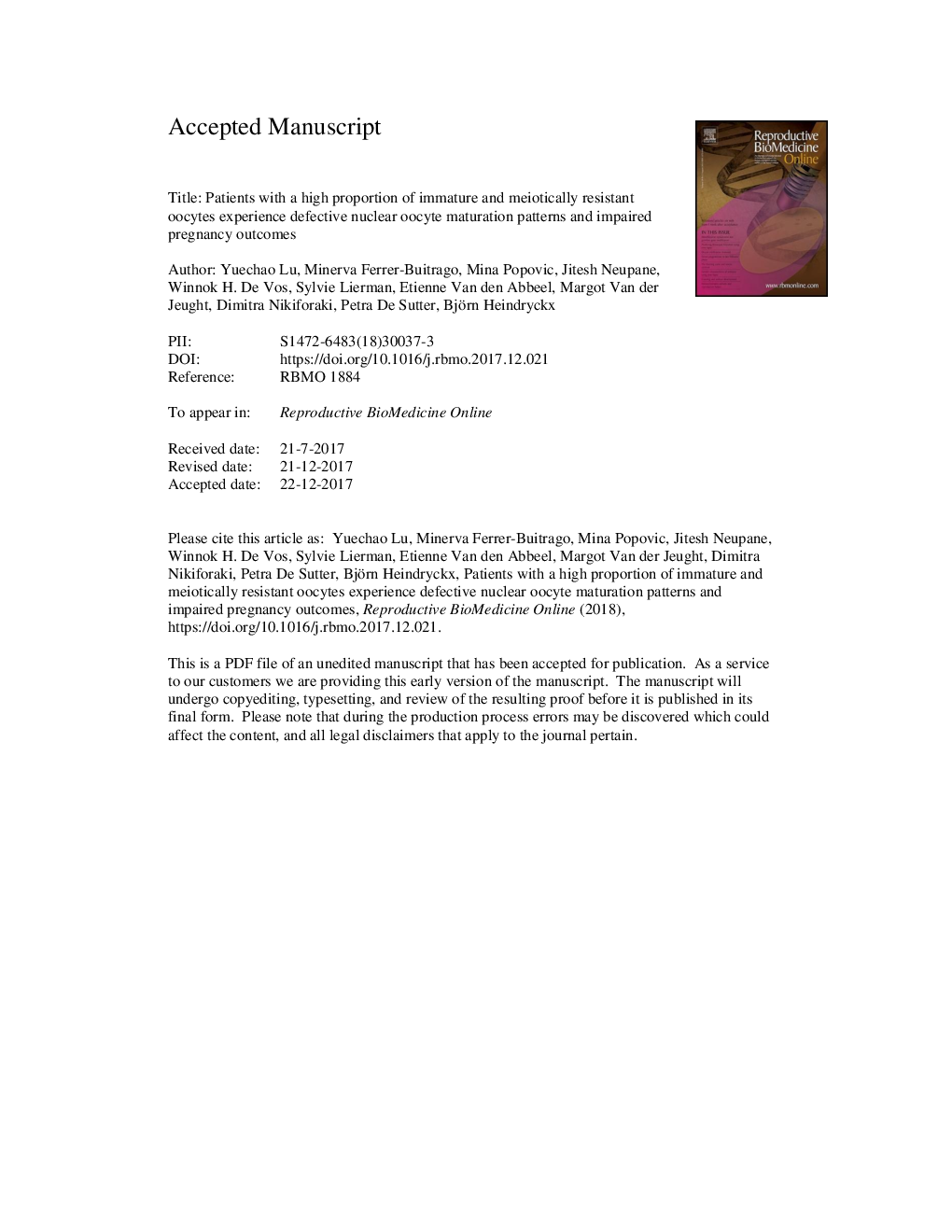| Article ID | Journal | Published Year | Pages | File Type |
|---|---|---|---|---|
| 8783868 | Reproductive BioMedicine Online | 2018 | 28 Pages |
Abstract
Patients presenting with abnormally high numbers of immature oocytes at retrieval are more likely to exhibit maturation resistant oocytes. However, the clinical relevance of such events remains unknown. We investigated nuclear maturation competence of immature oocytes from patients showing >40% of collected immature oocytes (Study group) and Controls, in which a normal number of mature oocytes (â¥60%) was retrieved. Following in-vitro culture, oocytes were classified as maturation resistant or in-vitro matured (IVM). Treatment outcomes were evaluated in Study and Control groups based on presence of maturation resistant oocytes. Overall, similarly high spindle and chromosome abnormality rates were observed in maturation resistant oocytes from both Study and Control groups. IVM oocytes from the Study group revealed significantly higher percentages of misaligned chromosomes compared with Controls (P < 0.05). Remarkably, Study group patients with at least one maturation resistant oocyte showed significantly reduced cumulative pregnancy and live birth rates compared with Control group maturation resistant patients (P < 0.05). When further investigating the aetiology, a maturation resistant mouse model revealed defective Ca2+ signalling of maturation resistant oocytes at germinal vesicular breakdown and parthenogenetic activation. In conclusion, appropriate treatment strategies, including clinical utilization of IVM oocytes from Study group patients, warrant further investigation.
Related Topics
Health Sciences
Medicine and Dentistry
Obstetrics, Gynecology and Women's Health
Authors
Yuechao Lu, Minerva Ferrer-Buitrago, Mina Popovic, Jitesh Neupane, Winnok H. De Vos, Sylvie Lierman, Etienne Van den Abbeel, Margot Van der Jeught, Dimitra Nikiforaki, Petra De Sutter, Björn Heindryckx,
